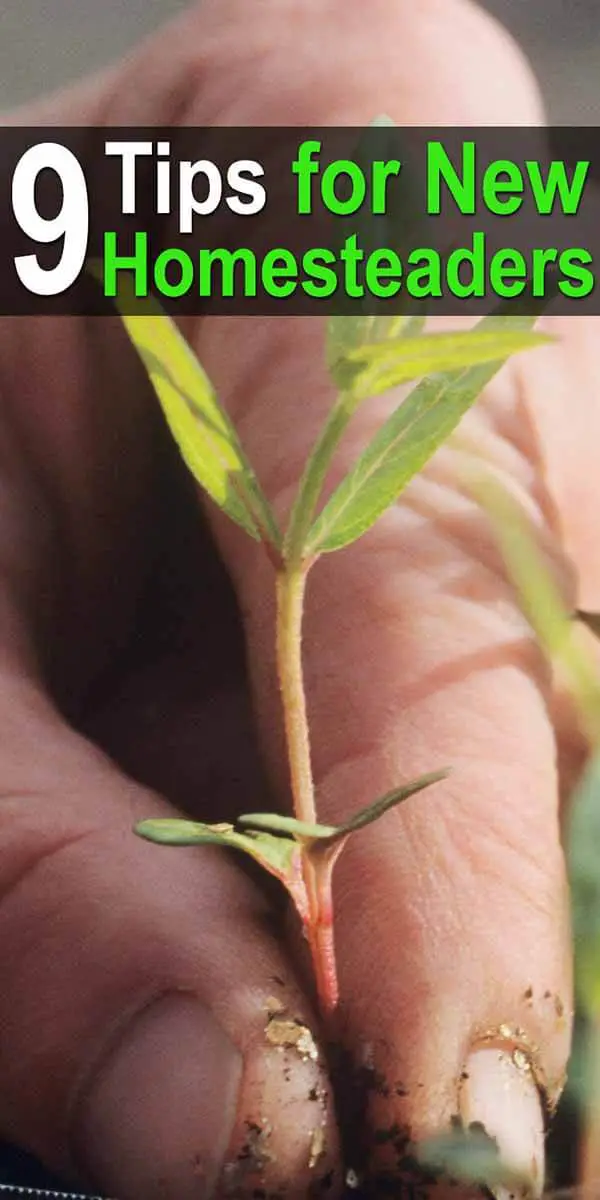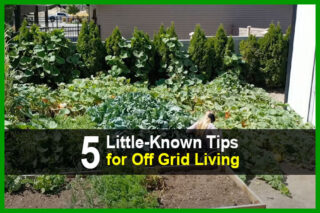Estimated reading time: 5 minutes

If you are thinking of homesteading or are just starting out, you probably have been immersing yourself in tons of information and advice. Maybe some of it is helpful; maybe some it is confusing. And just maybe, you are feeling overwhelmed.
Yes, there is a lot to learn, but no, you don’t have to learn it all at once. You couldn’t even if you wanted to. Also, since everyone’s homestead is a bit different, what works for others may not work for you.
However, there are some general pieces of advice that apply to all homesteaders. Here is our list – in no particular order – of homesteading tips to help you focus on what is important.
1. Start Small
Do you have dreams of a 40-acre homestead in a lush valley, but you currently live in town in a small house with a small backyard? You can start adapting to a homestead lifestyle wherever you are. Just begin with baby steps. Start a small garden, utilizing containers and vertical gardening methods to add options for more variety of plants.
Another idea is to check out community gardening in your area, or you could look for opportunities to tend a friend or neighbor’s garden in exchange for some of the harvest. You will gain valuable gardening experience and perhaps make some important contacts.
If you dream of raising livestock, you can start small with rabbits or even bees. Check with your community for any code restrictions before you begin.
2. Seek Out Mentors
Talk with people in your area who are living the way you want to live. Strike up a conversation with the farmers at your local grower’s market, for example. Ask the people running your community pumpkin patch how they got started. You’ll find that homesteaders enjoy sharing advice with newbies.
Don’t be shy about asking for a convenient time to ask questions. Since these folks have been through what you are going through and live in the area you live in, they will become invaluable resources.
3. Do Your Homework
Finding a mentor is only part of the research. You will want to educate yourself on the soil, water, wildlife and climate in your area. You’ll need to be up on your garbage and recycling options. Your local university extension service can be a great resource for gardening information. In addition to the local contacts you make, homesteading blogs can a rich source of information and support.
4. Learn Repair and Renovation Skills
Successful homesteaders know how to perform many basic home repairs themselves. If you are inexperienced in simple carpentry, plumbing, and electrical maintenance, it’s time to learn. There are many internet videos, blogs, and books on these subjects, but there is nothing like hands-on experience. Ask friends, family and/or your new mentors to let you tag along to watch when they make repairs. Also, consider taking a course or two at your community college.
5. Start Preserving Your Food
Even if you are not able to grow most of your food yet, you can still learn and practice homesteading food skills with the fresh fruits and vegetables you have now. Canning, dehydrating, and using a root cellar are all part of the homesteading life. You’ll start saving time and money by learning and practicing these skills now.
6. Begin or Add to Your Tool Collection
As you learn new skills, you will need the proper tools to go with them. Quality gardening and carpentry tools will be an investment in your homestead’s future. Start with the basics for home and garden and add as you go along. To maintain your investment, learn how to clean, maintain, store, and repair your tools.
7. Explore Income Sources
A homesteading lifestyle is a frugal lifestyle. You will need to save money for big expenses and tackle them little by little. Even though your plan may be to produce your own food and to be off the grid to save on utilities, for instance, you still will have a number of regular expenses. Property taxes, animal feed, doctor and veterinarian bills, insurance, and unexpected repairs are just a few examples.
Brainstorm ways to add to your income by exploring new avenues of revenue. Many homesteaders help make ends meet by selling items they grow or make or by finding ways to freelance their skills. It’s not too early to get some of these income-producing projects up and running now.
8. Keep a Journal
A homesteader’s life is a busy and varied one. You cannot rely on your memory alone to keep track of all the details, so you need to get in the habit of writing things down. A journal can help you learn from your mistakes and your successes. For instance, it is a good idea to list what you plant and where you plant it. Develop a budget and follow it by keeping accurate records and receipts in your journal.
9. Learn and Grow
Homesteading is an ongoing process, and it is a certainty that you will have some great successes and some disappointing failures on your journey. (Another given is that at least one of your friends and relatives will think you’re nuts!)
When things get overwhelming, it may be time for a break. Take the time to review with your family the reasons why you desired the homesteading lifestyle in the first place. Get outdoors and enjoy the beauty of nature. Then take a deep breath, slow down and get back on track – one step at a time.











